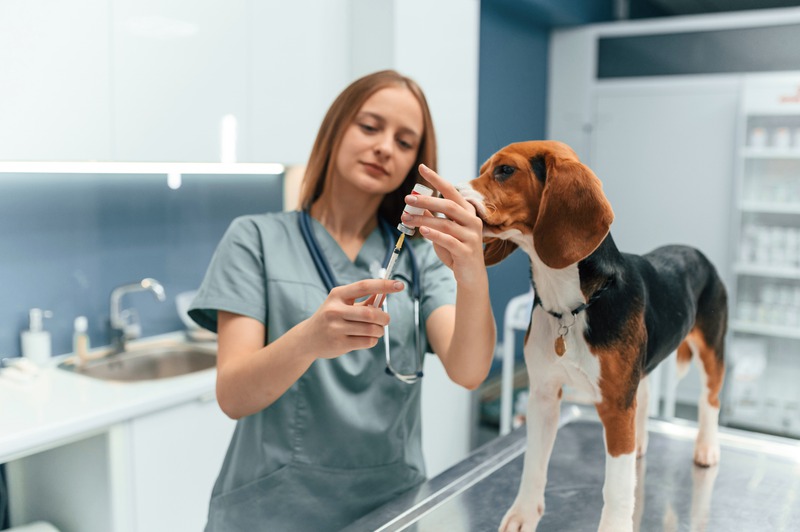As pet parents, you’re probably familiar with the annual checkups that your furry friends need. However, you might need to become more familiar with the whys and hows of the blood tests that often come with these visits. Think of blood tests as a sneak peek into your pet’s well-being, offering invaluable insights that might not be evident during a regular physical exam. So why exactly are these tests so crucial for your pet’s health? Let’s unravel the mystery.
The Lowdown on Blood Work for Pets
Blood tests are vital in pet healthcare for several reasons, as they provide valuable information about your pet’s overall health, organ function, and physiological status. Here are some key reasons why blood tests are essential in pet healthcare:
1. Screening for Disease
-
Blood tests help veterinarians screen for various diseases and medical conditions in pets. Routine blood work in a reputable vet lab in Orlando, FL, such as a complete blood count (CBC) and serum biochemistry profile, can detect abnormalities indicative of infections, inflammation, anemia, organ dysfunction, metabolic disorders, and endocrine imbalances.
2. Early Disease Detection
-
Blood tests enable early detection of underlying medical conditions before clinical signs become apparent. Detecting diseases in their early stages allows for timely intervention, potentially preventing progression to more advanced stages and improving treatment outcomes. Early detection is significant for managing chronic conditions like kidney disease, diabetes, and liver disease.
3. Monitoring Chronic Conditions
-
Pets with chronic medical conditions, such as kidney disease, diabetes, hyperthyroidism, and arthritis, require regular monitoring through blood tests to assess disease progression, response to treatment, and overall health status. Monitoring parameters such as kidney function tests, blood glucose levels, thyroid hormone levels, and inflammatory markers help veterinarians adjust treatment plans and optimize patient care.
4. Assessment of Organ Function
-
Blood tests provide valuable information about the function of various organs and systems in the body. Serum biochemistry profiles assess organ function by measuring levels of enzymes, electrolytes, proteins, and other biochemical markers. Abnormalities in these parameters may indicate liver disease, kidney dysfunction, pancreatic disorders, or electrolyte imbalances.
5. Pre-Anesthetic Screening
-
Before undergoing surgical procedures or anesthesia, pets require pre-anesthetic screening to evaluate their overall health and assess any potential risks associated with anesthesia. Blood tests, including a CBC, serum biochemistry panel, and coagulation profile, help identify underlying medical conditions affecting anesthesia safety and surgical outcomes, such as anemia, organ dysfunction, or clotting disorders.
6. Diagnostic Workup for Illness
-
When pets present with signs of illness or unexplained symptoms, blood tests are often part of the diagnostic workup to determine the underlying cause of their condition. Comprehensive blood work and other diagnostic tests, such as imaging studies and cytology, help veterinarians diagnose infections, inflammatory conditions, neoplastic diseases, and systemic illnesses.
-
If your pet experiences an accident or sudden illness, blood tests become an immediate tool to help diagnose and treat the problem. A pet emergency often requires swift action, and knowing what’s wrong internally is crucial. In these critical moments, vets rely on blood work to make informed decisions and provide the best care.
7. Assessment of Nutritional Status
-
Blood tests can assess your pet’s nutritional status and metabolic health. Nutritional screening panels measure levels of essential nutrients, vitamins, and minerals in the blood, helping veterinarians identify deficiencies, imbalances, or metabolic disorders that may impact your pet’s health and well-being.
8. Evaluation of Blood Cells
-
A CBC provides information about your pet’s blood cells, including red, white, and platelets. Cell counts or morphology abnormalities may indicate anemia, infection, inflammation, immune-mediated disorders, or hematologic malignancies, guiding further diagnostic investigations and treatment decisions.
Overall, blood tests are essential in pet healthcare for screening, early disease detection, monitoring chronic conditions, assessing organ function, pre-anesthetic screening, diagnostic workup for illness, evaluating nutritional status, and assessing blood cell parameters. Regular veterinary examinations and kitten vaccinations, including blood testing as needed, are crucial in maintaining your pet’s health and well-being.
What to Expect When Your Pet Needs Blood Work
When the time comes for your pet to have blood tests done, here’s what typically happens:
-
Your pet will be comfortably restrained to minimize stress and ensure a quick, clean blood draw.
-
The amount of blood taken usually depends on what tests are being run.
-
Most pets handle blood draws very well, with minimal discomfort.
-
Results can often be available rapidly, especially with in-house lab equipment, but some tests may take longer.
You should also be prepared to discuss your pet’s health history, lifestyle, and current medications, all of which can affect test results.
Wrapping Up
Blood tests are indispensable in maintaining the health of our pets. They’re the backbone of both preventative care and emergency treatment, providing critical insight into the well-being of our furry family members. Whether through routine check-ups, managing a chronic illness, or navigating the high-stress situation of a pet emergency, these tests provide the data vets need to make the best decisions for your pet’s health. Early detection often means distinguishing between a manageable condition and a health crisis.

